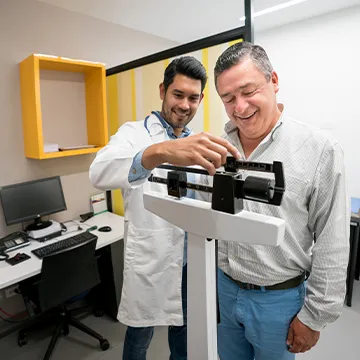Clinical Placement Support
While we work diligently to place all of our students, circumstances beyond our control may not guarantee placement. Securing a nursing clinical site and a preceptor takes a lot of work; there’s no way around it. Our clinical placement team identifies and assists students to secure quality placement sites and preceptors so you can focus more time on your coursework and the core competencies you need to succeed.
We understand how important it is for nursing students to access the best placement sites to broaden their clinical learning experience. That’s why we help as you complete all the requirements on the nursing clinical checklist so you will be ready for your clinical practicums.
You will be assigned a clinical placement coordinator who will work closely with you in preparation for your clinical placement experience, working towards placement clinical rotations that are compliant and meet University and national guidelines.
*Wilkes University does not guarantee placement. Due to the ever-changing nature of environments and factors out of our control, the effectiveness of our clinical placement services is determined by student participation, preceptor engagement, and cooperation of all stakeholders involved throughout the placement process. While we work diligently to place all of our students, circumstances beyond our control may not guarantee placement. We expect our students to meet placement requirements prior to clinical course enrollment, leverage their professional networks to provide contact and preceptor referrals, and meet all required deadlines.
Frequently Asked Questions About Clinical Placement Support
To accompany online classroom learning and test-taking, nurses also need clinical experience to practice what they’ve learned in theory. Hands-on patient care is a requisite component of a nursing degree and must be practiced on real patients in clinical settings.
During clinical rotations, nursing students are under the close supervision of their preceptor or clinical instructor. They are given specific instructions to follow while keeping clinical practice guidelines and best practices in mind. Students are placed in a variety of health care facility settings. Clinicals are very similar to an internship or being an apprentice; students assume the role of the nurse and provide care for real patients, but they benefit from the supervision and guidance of their preceptors and other health care professionals.
Nursing students must complete a certain number of clinical hours as determined by the American Association of Nurse Practitioners (AANP) and the American Nurses Credentialing Center (ANCC). Please note, these are not paid positions, but they count toward the degree.
The clinical placement team will collaborate with you to secure quality placement sites and find potential preceptors. In addition to completing a placement intake form, you will be responsible for completing all of your clinical clearance requirements prior to the start of your first clinical rotation.
In close collaboration with you, our clinical placement team identifies and assists in securing quality placement sites. This process allows you to focus on the coursework and the core competencies that will direct your placement experience. As an active participant in the placement process, providing referrals from your local community increases your chances of securing quality sites and preceptors near you.
You will receive a notification from your dedicated clinical placement coordinator prior to each clinical start date. Once the placement has been confirmed and communicated, you are encouraged to begin working with your preceptor directly to establish a schedule for the term.
You are not alone in preparing for nursing school clinicals! Your clinical placement coordinator will be with you through the entire process by answering your questions, providing a clinical orientation, verifying your clinical clearances and walking you through the clinical checklist. The nursing clinical checklist details the dress code, clinical tools and professional expectations to ensure your success throughout each rotation.
All nursing clinical experiences are different because student nurses work in a variety of health care facility environments when doing their clinical rotations. We recommend working in different types of settings so you can decide which areas you want to pursue. And by doing so, you can make multiple connections and network for future jobs.
You will begin your clinical rotations after the required background checks and physical examinations are successfully completed. Nursing clinicals can require you to work shifts as long as 12 hours. Due to the long nature of these shifts, our nursing programs are flexible so you can simultaneously complete your clinical requirements.
During your clinical rotation, expect to work under an experienced nurse or qualified health care provider who will coach you throughout the process. As a student, you will gain clinical experience by learning common nursing skills such as inserting IVs, taking blood pressure readings, administering medicine and so much more.
Wilkes students have a list of clinical clearances they need to complete before they can start clinical rotations. While each site will have different prerequisites, there are some general requirements that are universal.
Immunization
To protect the health and safety of patients, other nursing students and healthcare staff, all students in nursing clinical rotations must provide proof of immunization. There is usually an initial immunization form that must be completed before beginning the degree program, and each year following requires some additional immunization documentation.
Some placement sites may also make it mandatory to have the seasonal flu shot as an extra safety measure. Your placement coordinator can go over the details with you.
Mask Fitting
Student nurses must have a face mask fit test to ensure their mask fits their unique face shape properly. Mask fit tests are valid for two years from the date of testing. Our placement coordinators refer students to local centers where they can go for their mask fittings. The cost of this test is not covered in the tuition and is your responsibility.
If you experience a change in your facial structure before the two-year retesting date, you must arrange a new mask fitting.
Background Check
All nursing students must complete a background check which includes a criminal reference check. The check is usually valid for a full year from the date of issue and must be valid through the entire academic year. Your local police must perform your background check and any costs associated with it are your responsibility. Many police departments offer a student discount for background checks; check with your local police to learn more.
If you have a criminal record, please reach out to us directly, as it may affect your nursing clinical placement and your eligibility to become a registered nurse.
CPR Certification
All students in Wilkes University online nursing programs must show proof of a valid CPR certification. We do not accept online CPR course certification. The CPR certification is valid for one year from the date of issue and must cover the entire academic year. Our helpful advisors can guide you to recommended providers for CPR certification in your local area.
We also strongly recommend First Aid certification, but we do not require it.
Additional Training and Forms
Depending on your placement site, there is usually some specific training that must be completed before starting your clinicals. Students must provide proof-of-completion certificates as part of their pre-placement requirements. Your placement coordinator will go over the necessary training with you to make sure you have covered everything in your clinicals checklist.
Wilkes University Nursing Online
Our online nursing courses are as exceptional as our campus classes. Choose your path below to learn more.









